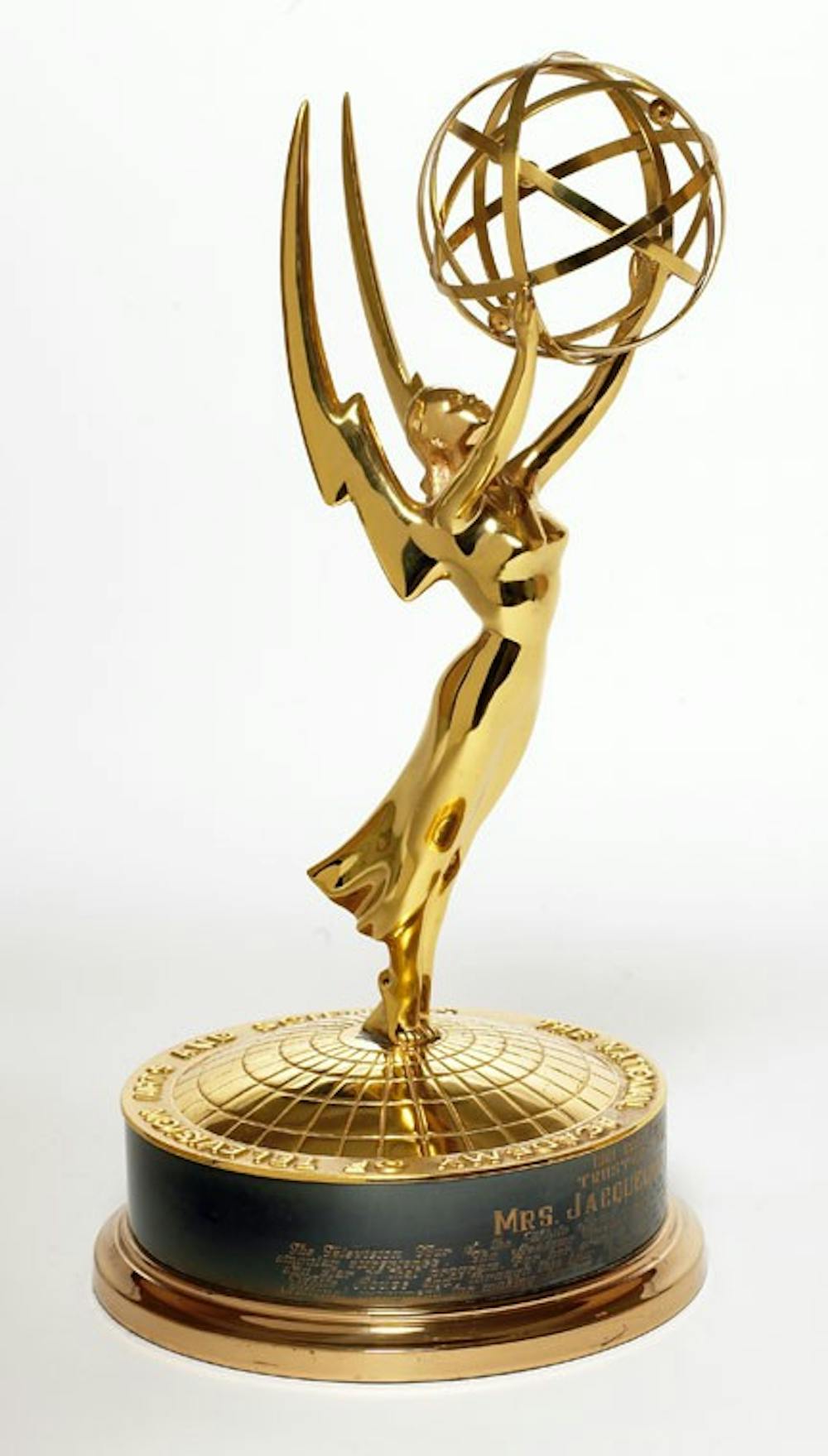Award shows are the ultimate pop culture conglomerate. There’s high fashion on the red carpet, celebrity appearances, surprise upsets and snubs, hosts making Hollywood in–jokes and people reacting on Twitter all the while. Far more than just a celebration of film, television and music, events like the Emmys, the Oscars or the Grammys have become shared cultural experiences. Anyone who has religiously followed all of these awards shows has been able to observe their rapid politicization over the past few years. Winners now spend less time stuttering hurried thank yous and instead come with articulate orations about social and political issues facing our society today. In 2014, Beyoncé accepted the VMA Video Vanguard Award with a 16–minute medley of her self–titled fifth album. During the song “Flawless,” she stood in front of the word “Feminist” in bold, white letters against a black screen. In 2015, Patricia Arquette accepted her Best Supporting Actress Oscar for Boyhood and implored America to fight for women’s wage equality. At that same Oscars ceremony, speeches were given in support of the Black Lives Matter movement, immigration reform and removing the stigma from mental health issues.
At this year’s Emmys on September 18, winners took their speeches as opportunities to endorse their politicians of choice. Courtney B. Vance (winner for Best Lead Actor in a Limited Series) ended his speech by crying, “Obama out, Hillary in!” and Jill Soloway (winner for Best Director in a Comedy Series) used an interview backstage to call Donald Trump an “inheritor to Hitler.” Though the awards were handed out just over two weeks ago, the impassioned messages of these acceptance speeches will reverberate throughout the remainder of election season. The act of accepting an award is a fascinating prospect—you have around 90 seconds to say whatever you want to the entire American public in real time, so it’s no surprise that celebrities have started to use it to push their political agendas.
Additionally, the exponential growth of social media provides an even bigger megaphone for these stars. Collective experiences like award shows make the public flock to social networking sites—for example, when Leonardo DiCaprio won Best Actor at the 2016 Oscars, over 440,000 tweets were being sent out per minute. With everyone from reporters to moms from middle America tweeting and Facebooking their thoughts on the show, a single quote, speech or moment can catch traction online and become the top headline of the night (and be seen by millions of new people in the news the next morning).
Though political statements during award shows have recently become commonplace, this celebrity soapboxing has been limited to the past few years. Perhaps the boldest awards show political statement ever came in 1973, when Marlon Brando won the Academy Award for Best Actor for his performance in The Godfather. Brando, a fervent advocate for civil rights, declined the award, instead sending Sacheen Littlefeather, a Native American activist, to accept it for him. Littlefeather—dressed in traditional Apache clothing—faced a blend of applause and boos from the crowd as she delivered a sobering speech on Brando’s behalf decrying the treatment of Native Americans by the film industry and the American government. This speech led to the Academy’s creation of a rule banning award recipients from sending someone else to the podium on their behalf.
The award show speech has become a platform where winners feel almost obligated to take a stance. So do these speeches make any difference? In a culture where we have countless messages and advertisements telling us what to think, does a quick speech from a well–known actor or performer have the power to influence our beliefs? In the echo chamber that is Hollywood, these progressive ideas may be conventional, but the real power of award shows is their universality—everyone in America wants to watch Leonardo DiCaprio win his Oscar. These nights can serve as a tool to expose the whole country to new and essential ideas, especially during an election year, when these things really matter.
In this political atmosphere, it is increasingly important for college students to watch award shows. They may be drawn out, stuffy and subjective, but they show Cate Blanchett talking about feminism and Leonardo DiCaprio talking about the environment. They have become pieces of the national political conversation, and that is something college students simply cannot miss.







